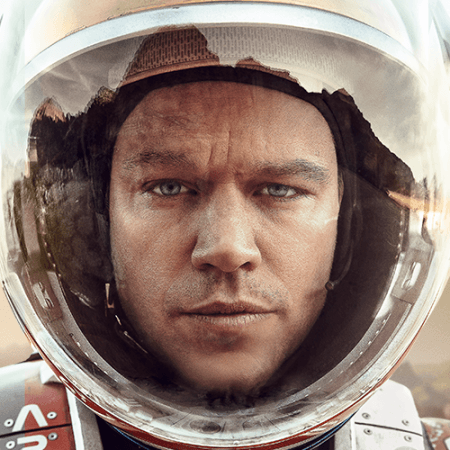
- Women scientists and engineers at NASA are big fans of space movies
- They are also surprisingly forgiving when it comes to scientific accuracy
- 2001: A space odyssey did not make the cut!
- Star Trek over Star Wars for the women of NASA
Scientists at NASA are a big fan of movies, especially space movies, however, not all movies based in space strike a chord with actual engineers who work and develop the technology that will one day take humans into the great beyond. Here is a list of movies that a team of women NASA employees think of space movies - ranked from worst to best.
Planet of the Apes (2001)
A movie where the lead character is trying to escape a planet ruled by apes and get back to Earth, it was dissed by NASA for being too inaccurate. This along with the 2000 thrillers Mission to Mars and Red Planet were also bumped to the bottom of the list because of how bad the science was in these films. Gioia Massa, manager at NASA's Veggie Lab said that these movies were "biologically quite bad," adding, "In one of them they got the names of DNA base pairs incorrect and in the other, they actually called some giant grasshopper-like creature a 'tiny worm,'" she said. Another movie that got relegated to the bottom was Armageddon, reports the Inquistr.
Gravity (2013)
This might come as a shock, but the thriller directed by Alfonso Cuaron, which won accolades and critical praise (Time magazine even named it the best movie of 2013), has gotten a massive thumbs-down from the NASA engineers. This is because of the way the space industry is portrayed in the film, including a lot of blunders that space engineers could not digest.
"Everything that could go wrong went terribly, terribly wrong and that's not exactly the feeling we want everybody to have about this industry," said heat shield analyst Tori Wills pointed out. Another thing that irked the researchers was how easily the main character- astronaut Ryan Stone was able to move from orbit to orbit. Also, the one hour of heavy breathing into the microphone was also a turn-off. However, of all the things that ticked off the ladies, it was how Stone looked when she gets out of her space suit. "When she gets out of her spacesuit she's in cute little underwear," said Allison McIntyre, the chief of NASA's Mockup Facility. "Where's the diaper?"
Star Trek: The Next Generation (1987-1994)
Even though the series ended over 20 years back, Star Trek is loved by NASA sci-fi fans for the way it inspired many women and men to get into space research. "I remember rushing home from school and watching that all the time," said Misty Snopkowski, launch site integrator at NASA. She even said that the series was one of the fuels that helped ignite her passion for everything related to space.
Another thing about Star Trek was its worldview, it offered "a Utopian view of the world and a Utopian view of space," said Wills.
Other honorable mentions in this side of the table were Interstellar (2014), Star Wars, and Hidden Figures (2016 ), which NASA launchpad project manager Regina Spellman said, "shows the true power of women", and Guardians of the Galaxy Vol 2 - because of Baby Groot.
Apollo 13 (1995)
The second top choice of the women at NASA was Apollo 13. "If it weren't for 'Apollo 13' it would be really hard for me to explain what my job is," said Emily Nelson, flight director at NASA's Mission Control. The movie seems to have struck a rather personal chord with scientists and engineers at the space agency. Astronaut Karen Nyberg (the 50th woman in space) who has spent time aboard the ISS even went so far as to call the film realistically made. "It just really is relevant to how we actually fly in space," she said.
The Martian (2015)
Labeled as the women of NASA's favorite space film, the Martian was seen as a movie that really impacted their lives. McIntyre noted that the movie rings true with so many who work at the space agency. My favorite space film is 'The Martian' because that's where we're going and it really does show just how hard it is," she said.
Gioia Massa, manager at NASA's Veggie Lab that is right now working on tech that could enable the growth of plants in space said that she was thrilled they used a botanist as the main character. "Not only that, it was a plant scientist who didn't go insane and cause a lot of havoc," she pointed out.
The story is based on a BBC report on NASA's women and their take on films that project their profession.

















